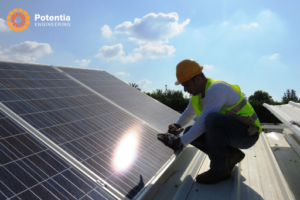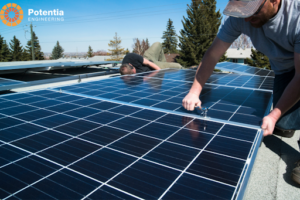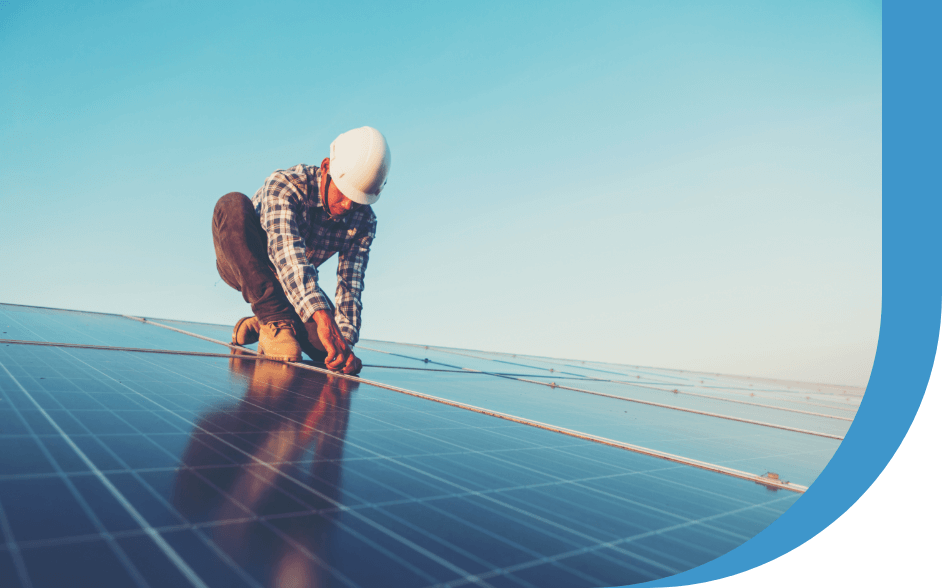With the increasing focus on renewable energy sources, solar power has emerged as a popular choice for homeowners looking to reduce their carbon footprint and save on energy costs.
However, selecting the right solar panels for your home can take time and effort, considering the variety of available options.
In this comprehensive guide, we'll explore the key factors to consider when choosing solar panels to ensure you make an informed decision that meets your energy needs and budget.
Related Articles:
When selecting solar panels for your home, it's essential to consider the type of panels available and their suitability for your specific needs. Here's an overview of the three main types of solar panels:
Monocrystalline Panels:

Polycrystalline Panels:
Thin-Film Panels:
High-efficiency panels are particularly beneficial for homes with limited roof space or areas with lower sunlight exposure. Since these panels can generate more power from the available sunlight, they can produce sufficient energy even in less-than-optimal conditions.
This makes them ideal for homeowners who want to maximise energy production without sacrificing valuable roof space. Additionally, high-efficiency panels may be more cost-effective in the long run, as they can generate more electricity over their lifespan than lower-efficiency panels.
While high-efficiency panels may have a higher upfront cost, the potential for increased energy production and savings on electricity bills can outweigh the initial investment.

Quality and Durability are crucial factors to consider when selecting solar panels for your home. The following are important things to remember:
Tip - When it comes to choosing solar panels in the UK, trust Potentia Engineering as your reliable partner. With our expertise and commitment to excellence, harnessing solar energy has never been easier.
Contact us for all your solar panel needs and brighten your future today!
Cost is a significant consideration for homeowners looking to invest in solar panels. While the benefits of solar energy are clear, it's essential to find a balance between upfront expenses and long-term savings when choosing solar panels for your home.
One metric to consider when evaluating the cost of solar panels is the cost per watt. This metric helps compare the relative affordability of different solar panel brands and models. It's calculated by dividing the total cost of the solar panels by their power output in watts. A lower cost per watt indicates a better value for money.
It's also essential to explore available incentives and rebates to help offset the cost of installing solar panels. Many governments and utility companies offer financial incentives, tax credits, or other programs to encourage homeowners to switch to solar energy. By taking advantage of these incentives, you can further reduce the overall cost of your solar panel installation.
Installation and maintenance are crucial aspects to consider when investing in solar panels for your home. The solar panels installation process begins with evaluating the compatibility of your roof structure with solar panel requirements. It's essential to choose a reputable solar installer with experience in residential projects to ensure a quality installation.
During solar panels installation, the installer will mount the solar panels onto your roof securely. They will also connect the panels to your home's electrical system, allowing you to harness solar energy to power your home. Proper installation is key to maximising the efficiency and longevity of your solar panels.
Once the solar panels are installed, regular maintenance is necessary to ensure optimal performance. This includes periodic cleaning to remove dirt, dust, and debris that may accumulate on the panels over time. Inspections should also be conducted to check for any signs of damage or degradation.
By investing in professional solar panels installation and regular maintenance, you can ensure that your solar panels continue to generate clean and renewable energy for your home for years to come.
Investing in solar panels for your home is a significant decision that can offer long-term benefits regarding energy savings, environmental impact, and energy independence. With careful planning and research, you can journey towards harnessing clean and renewable solar energy for your home.

We pride ourselves on giving an exceptional level of customer service. Contact us to day for a no obligation quote.



If you would like to receive a personalised quote for any or our services, or just have general queries about Solar energy systems please complete the form below. We aim to get back to you within 24 hours.